#yay slavic mythology
Text



#Kresnik#mythology#slavic#yay slavic mythology#slavic mythology#myths#myth#fire god#one of many gods of fire#gods#deities#deity#slavic deity#slavic myths#folklore
158 notes
·
View notes
Text
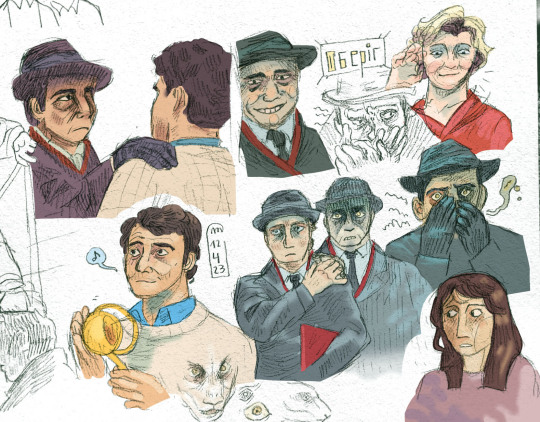
come and don't look back
#Оберег#amulet#amulet 1991#screenshot redraw#fortis arbor's art#traditional#digital#ibisPaint x#fanart#image described#movies that make me go I LOVE WEIRD TORMENTED GUYS!!!!!!#i had no idea wat this movie was about so it was so delightful that it had werewolves(?).... YAY#it seems werewolfy but the plot synopsis online says its vampires. whatever it was it was spooky aaaand i liked it ::-)#i guess that vampires and werewolves overlap in slavic mythologies from reading about them online.
6 notes
·
View notes
Text
I saw the post about greek-inspired Argathans speaking Russian, and while that is funny, I think nowhere in Fodlan is more chaotic than Faerghus!
It's a country that:
Has cold weather and a militant atmosphere and people have slavic names and like distilled alcohol, like Russia.
But its culture put emphasis on chivalry and their food is terrible, like Britain.
While also having Celtic origin for the names of their cities, relics, and their very country name (and the king's surname too).
Greek mythology reference is also present in some names like Galatea and Charon.
But no matter where the names are from, they always write them in French spelling (and a good number of people have pure French name like Sylvain), and Fhirdiad has a history like medieval Paris.
Yet, like everywhere else in Fodlan, they speak German.
Thinking of this I guess Greeks speaking Russian is only normal :P
*The last point may be a bit hard to get since the English version localized everything to be English. But in the jp version, that's how they pronounce the three houses' names (Adler Klasse, Löwen Klasse, Hirsche Klasse) and their technique names in this video. Take the barbarians as example, the English version goes:
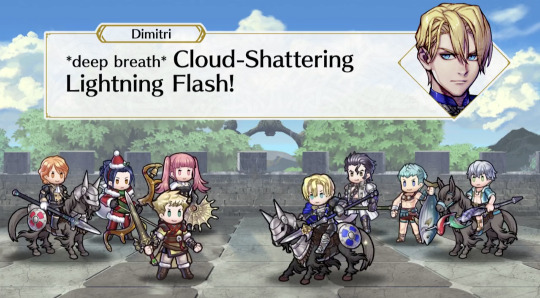
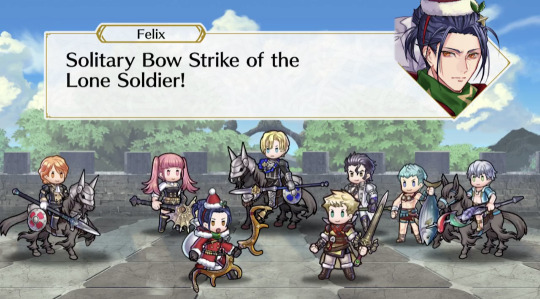
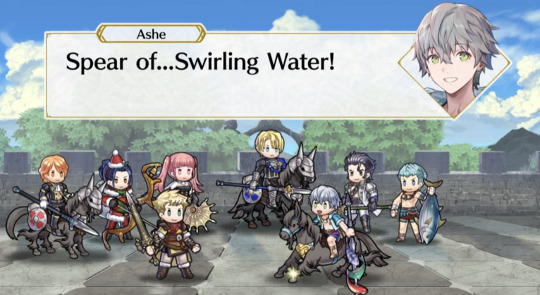
In jp, they say:
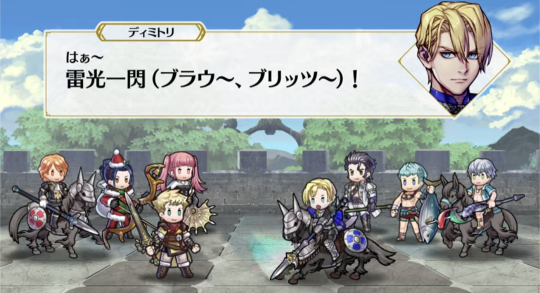
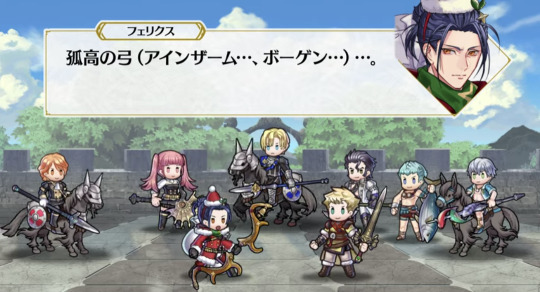
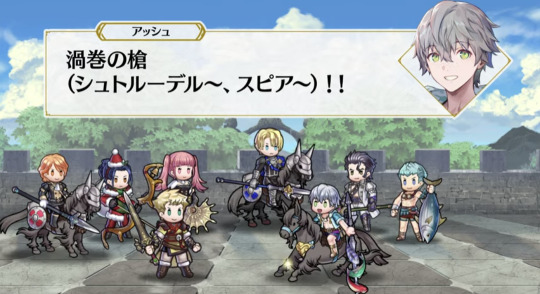
It's kanji with German pronunciations that reads "Blau Blitz", "Einsam Bogen" and "Strudel Speer" (lol at EN!Felix saying "lone" twice like a true edgelord). The same goes for everyone else too:
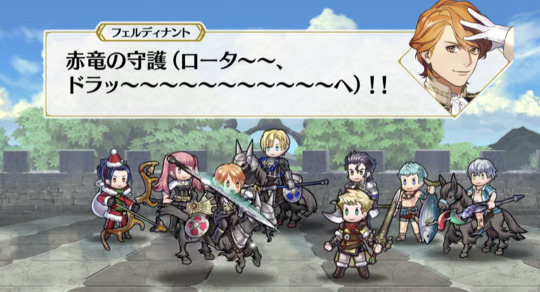
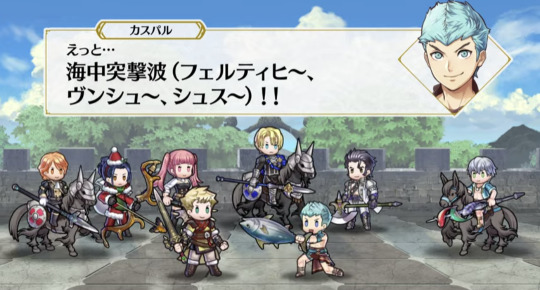
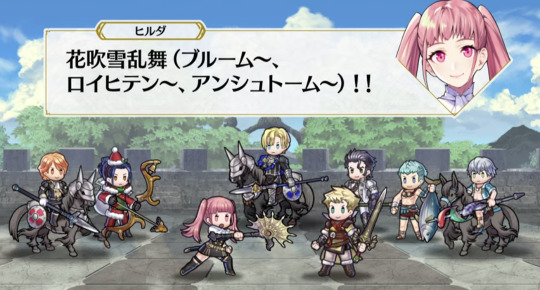
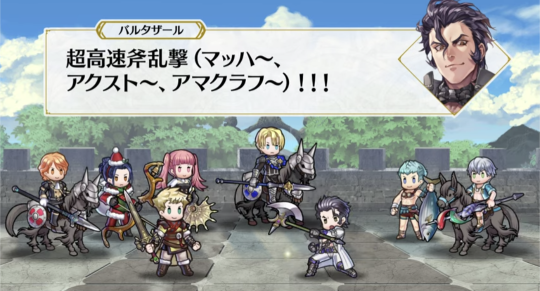
Ferdie's one says "Roter Drache" and I can recognize Hilda's starts with "Blühen" and Balthus's is "Mach Axt [something]" but the rest are a bit too difficult for me to decipher :P
Is it just me or the barbarians' naming sense is visibly poorer than the others
Considering that Adrestia has the heaviest German motif (yay Schwartz Adler Wehr), maybe it's the impact it left from the time it ruled over all Fodlan. Even if Faerghus later said f u and rejected their way of naming and spelling, they still speak their language? Further proof they're just part of Adrestia, MAGA!
And considering that Seiros (kind of) built Adrestia, did the lizards also speak German?
#yeah I actually just wanted to talk about their dumb Germany technique names#is ''blau blitz'' the origin of ''azure lightning''?#or vice versa#he really is blue pikachu#also which red dragon is Ferdie referring to?#btw I know that they said Faerghus is based on Frankish Kingdom and Adrestia is Roman Empire?#funny how nobody guessed that for how they actually appeared in game make people think of other countries more
7 notes
·
View notes
Text
world building cause twn doesn't part 10: the law of surprise
arguably one of the most confusing parts of the witcher universe that is never really explained outright. BUT it is clearly super important, so let's go! also huge thanks to the people i bugged for slavic and biblical stories, i promise i'm not making some devil deal.
colour code cause i fucking love colour codes - already happened/introduced, probably s2, important background info, stuff that might be in the prequel, extras
series masterpost
origins
the law of surprise is actually a major theme in slavic mythology, which is probably why we never get a straightforward explanation about it. the witcher was never really meant for a non-slavic audience, so sapkowski likely assumed that the reader would just know what he's talking about
traditionally, if you asked the devil for something, you would pay him with "what you had left at home without knowing or expecting it"
witchers were said to be servants of the devil, and therefore would request the law in payment for their services
there's even a version of the law in the old testament! the judge jephthah led the israelites in a victorious battle against the rival kingdom of ammon. in exchange for defeating the ammonites, he vowed to sacrifice whatever came out of his door first when he came home. this turned out to be his daughter, and, while he regretted it, jephthah sacrificed her to god
how it works
put simply-ish, the law of surprise states that when someone is saved by someone else, the saviour can request a payment that is unknown by both parties at the time of the deal.
confusing? yes? allow me to explain
first, the law only applies to life or death situations. nothing else. some people even take this to mean that the only reward for saving someone's life is the law of surprise, but that's less common.
still, it's very widely believed that the law of surprise is the best payment for a life debt. this goes into the whole destiny thing which i'll talk more about later.
witchers are notable for claiming the law because their occupation tends to lead to a lot of life-saving, but it's not exclusive to the witchering profession
so, when you save someone's life, they will ask you how they can repay you. you then can enact the law of surprise, which entitles you to something that neither you nor the person you saved know exists yet.
for example, pavetta's father, roegner, fell into a ravine and broke his legs, but was rescued by duny. as duny's reward, he invoked the law of surprise. roegner didn't know that his wife was pregnant, obviously duny didn't know this either, and that baby belonged to duny
requests
this is just what comes after the classic "you've saved me! how can i ever repay you?" "well, i think there's something that we both might like..." *smooth jazz starts playing*
ah shit that's the porno version!
so sorry, here's the real version
when someone asks how they can repay you for saving their life, there are two basic requests you can make, either "the first thing that comes to greet you" or "what you find at home but do not expect".
the first one is less severe, and can really be anything, ie a dog that runs outside or a visitor at the gate (not really sure how that one would work logistically)
the second one is more common and powerful, as it's almost always a child. usually the person who is rewarding the law comes home and finds out that their wife is pregnant or had a baby. oops?
geralt requested "that which you already have but do not know" from duny, which is a variation of the second one that almost exclusively means an unborn child, just wrapped in convoluted packaging. our favourite witcher is really smart but also really stupid.
payment
obviously, the logistics of actually picking up the thing that you don't know about are pretty confusing
but it tends to work out in one of a few ways
sometimes the unexpected thing makes itself known right then and there, like with geralt and ciri. in this case, the person who did the saving will just decide what to do with their reward.
more frequently, the person who was saved will bring the person who did the saving to their house, where they will both find something unexpected.
in this scenario, the unexpected thing can either be taken by the person who did the saving immediately (usually in the case of an animal), or they will come back and get it in a few years (usually in the case of a child). do they come back and get it? results vary.
occasionally, the person who did the saving will just book it, either trusting destiny to deliver them their reward when the time is right or hoping that destiny is a myth and they don't need to actually get their reward.
destiny
it makes sense that destiny is a huge part of the law of surprise, given both of their important presences in the witcher
the law of surprise is the most common payment for a life debt because when you save someone's life, you are acting on behalf of destiny to allow them to survive something that they shouldn't have survived, but were destined to
destiny also ensures that the reward will always be received. geralt denied his reward for years, but we all know how that turned out.
that's why eist tuirseach was so ready to throw down at the idea of the law of surprise not being honoured, if someone claims the law of surprise, you have to respect that.
examples
obviously, the most notable example is ciri and geralt. you probably know the story from twn, but the book version is slightly more dramatic so i'll tell it in brief.
geralt saved duny from certain death after calanthe ordered his capa detated from his body. geralt claimed the law of surprise almost as a joke and well...
but of course this story gets far more complicated. in those 6 years, pavetta and duny had died and calanthe didn't want to give away her only descendant, so she just kinda didn't.
five years later, geralt and ciri met face to face but geralt refused to take ciri, believing that he would only bring her death. she was devastated, since this forced her to be sent back to her grandmother who just wanted to marry her off to some prince.
around a year later, after the sacking of cintra, geralt saved a farmer named yurga from some ghouls. believing that his first child surprise had died with the rest of her family in the palace, and feeling just generally ironic, geralt claimed the law of surprise again.
turns out, that which yurga had at home but did not expect was none other than ciri, who miraculously escaped the palace and made it to yurga's home. having claimed the same child surprise twice, geralt finally took ciri as his daughter.
duny also claimed the law of surprise, but since he was like 15 at the time and was promised a baby, he decided to come back later and see what destiny could do in a few years.
turns out destiny created a 14 year old that was just perfect for duny's 29 year old wooing. yeah. it's... something. but, from their unholy union we got ciri! ew but yay? i guess?
eskel also claimed the law of surprise twice, first was the princess deidre ademeyn, who eskel avoided for years in a very geralt-fashion. the second was his horse named scorpion, whose story went decidedly smoother
#the witcher#witcher lore#twn#witcher netflix#geralt of rivia#cirilla fiona elen riannon#tw3#wild hunt#the witcher lore#eskel#witcher#jaskier#geraskier#queen calanthe#geraskefer#yennefer of vengerberg#yennefer#geralt#ciri#cirilla#mine#lore tag#gen tag#haven't got a fucking queue
152 notes
·
View notes
Text
ouat oc yay
Vasilisa works as a music teacher in Storybrooke
also has few different jobs
even older than Maleficent and is a strong magician but due to nature of her magic doesn't work with it often
can and will help magic wise but no one asked her for some reason
maybe bc she is from very different realm and no one knows where she is from
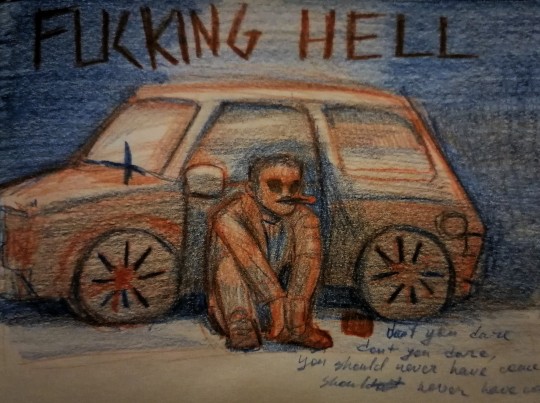
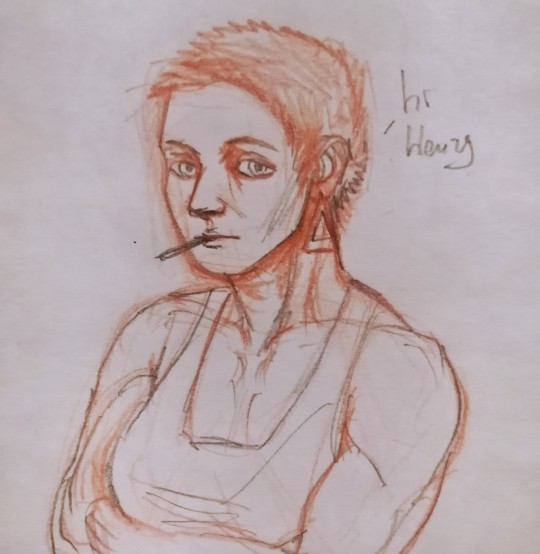
she isn't human tho.
Vasilisa Mikulishna is a daughter of Mikula one of the strongest bogatyrs bogatyrs are people with super powers in slavic mythology smth like Heracles but they don't have any divine ancestry
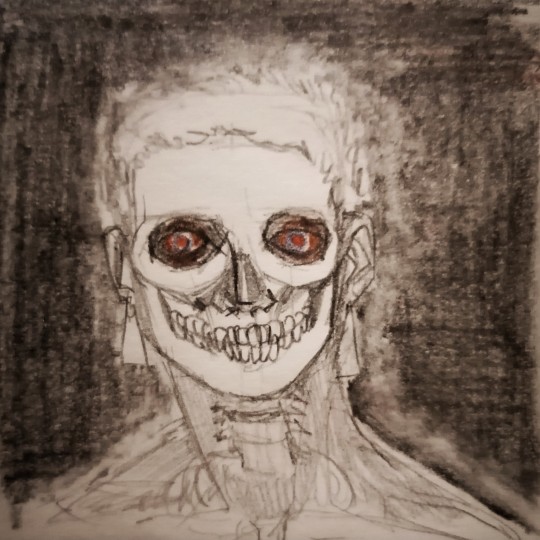
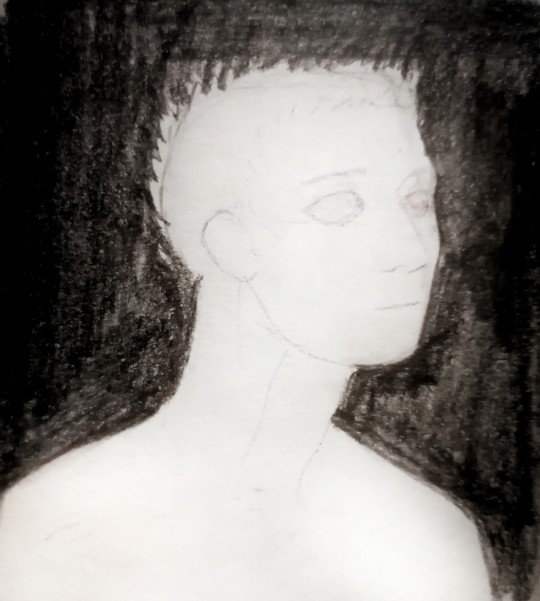
2 notes
·
View notes
Note
yoooo! i didn't get this result on your folk hero uquiz, but i love that Dobrynya Nikitich is one of the results. as a russian, i deeply appreciate it. awesome quiz :D
hiii yay i’m so glad u like it <3
my mum used to tell us tales of ivan tsarevich when i was younger, and i remember those being some of my first mythology stories ever,, so i have a great appreciation for slavic mythology in general <3
#it was fun to research!!#anon#anonymous#also no one panic- the cronus laugh compilation will return soon...#asks
8 notes
·
View notes
Note
Hi! How are you? :) I was wondering if you could help me out with something? I'm researching religious vocabulary in Indo-European languages for a uni project and I was wondering if you knew of any Slavic/Slovenian religious terms (god, sacred, altar, offering...) that come from PIE? I've mainly got Greek, Latin, Sanskrit and Germanic words at the moment and it would be awesome if I could bring in another perspective. I hope you don't mind me asking, I thought it might be your kind of thing :)
Hi! I’m doing great, especially now that I got this very stimulating question :D I hope you don’t mind if I answer this publicly, since I figure this might be interesting to others as well (and to spite that anon from ages ago who complained about the lack of Proto-Indo-European content on this blog lol).
First of all, I don’t know if you’ve already been using it, but it’s worth mentioning anyway: the general and most comprehensive work (that I know of) that tries to reconstruct as much as possible about Proto-Indo-European culture (material and otherwise), society, environment etc. based on reconstructible vocabulary is The Oxford Introduction to Proto-Indo-European and the Proto-Indo-European World by Mallory and Adams (which I’m sure you could find somewhere here, if your nearest library doesn’t have it :P). Admittedly it only has a small section devoted to exclusively religious vocabulary (6 pages or so), but it’s quite dense and you can find religious aspects in other sections as well (which does (unfortunately) mean you’ve got to look through basically all of it, but there is stuff like that there too).
Now to turn to Slavic, there’s Proto-Slavic *bȍgъ ”god”, with descendants in Belarusian, Russian, Rusyn, Ukrainian, Bulgarian, Macedonian бог, BCSM (Bosnian-Croatian-Serbian-Montenegrin) бо̑г/bȏg, Slovene bọ̑g, Lower Sorbian bog, Upper Sorbian bóh, Slovak boh, Czech bůh, Silesian bůg, Polabian büg, Kashubian, Polish bóg.†
If the reconstruction from the PIE root *bheh2g- “to apportion, to give a part, to distribute a share” (also reconstructed as *bhag-, though that might be controversial, as many believe that *a did not exist as a phoneme in PIE) is correct (the form we’re discussing is then ultimately a formation like *bhh2g-o-s), then it has cognates in Avestan and Old Persian baγa “god, (the) lord” (some also propose it was actually borrowed from the latter into Slavic), from the same root also Sanskrit bhāgá- “a part, a share, an inheritance, Vedic also lot → fortunate lot, good fortune, luck, destiny” along with the verbal root bhaj- with the same meanings as the PIE root, Ancient Greek ἔφαγον “I ate”
The word has a wide family, to give examples from Slovene: bogínja “a goddess”, bóžji “related to god”, božȃnstvo “a divinity”, božȃnski “divine, god-like”, pobọ́žen [ə] “devout, pious, godly”, pobọ́žnost “devotion, piety, godliness”, brezbọ́žen [ɛ-ə] “godless” etc.; capitalized Bog means the Christian “God”.—{LIV, NIL, Fran, Wikt}
Because this is long, the rest will be under the cut. Words featured below are: *svę̑tъ “holy, saint”, *žь̋rtva “an offering (to the gods), praising of gods”, *žьrьcь̍ “a (pagan) priest”, *dȗxъ “a breath, a spirit, a ghost, secondarily a demon, as well as mind (=mental ability, mentality)”, *duša̍ “a soul”, *bě̑sъ “a demon, an evil spirit”, *čűdo “a miracle, a wonder”, *vȏrgъ “an enemy, a foe, a murderer”, *vorža̍ “divination”, *vě̋ra “faith”.
† A note on accent marking in Slavic languages:
in East Slavic languages (Belarusian, Russian, Rusyn, Ukrainian) and Bulgarian, the “acute” accent mark ⟨◌́⟩ is used on multisyllables to indicate stress position and does not appear in regular orthographies of these languages – e. g. the example below: Ukrainian ⟨святи́й⟩ would be written ⟨святий⟩in regular orthography;
in (West) South Slavic languages (BCSM, Slovene), the accent marks used indicate stress position, length and pitch accent: stressed “acute”: ⟨◌́⟩ (long) and ⟨◌̀⟩ (short) – rising (BCSM) or low (Slovene) tone and stressed “circumflex”: ⟨◌̑⟩ (long) and ⟨◌̏⟩ (short) – falling (BCSM) or high (Slovene) tone; ⟨◌̄⟩ means that either tone is possible on a long vowel (Slovene) or it indicates length on unaccented vowels (BCSM). Additionally, in Slovene, the distinction between “open” [ɛ]/[ɔ]—⟨e⟩/⟨o⟩ and “close” [e]/[o]—⟨ẹ⟩/⟨ọ⟩ is marked by the dot below on close vowels (the square brackets [ ] indicate IPA transcription). Slovene [ə], written ⟨e⟩, is marked separately (by literally writing “[ə]” next to the word). None of these accent signs appear in regular orthographies of these languages – e. g. the example above: Slovene ⟨bọ̑g⟩ would be regularly written ⟨bog⟩;
in West Slavic languages (Czech, Polabian, Polish, Kashubian, Silesian, Slovak, Slovincian, Lower and Upper Sorbian), the accent marks indicate length or some other inherent property of the vowel, independent of stress position, and are thus always written – e. g. the example below: Slovak ⟨svätý⟩ is written ⟨svätý⟩ in regular orthography as well.
The word for “holy, saint” in PSl was *svę̑tъ with earlier meaning *“celebrated, revered” (all adjectives are only given in the masculine nom. sg. form, above as well↑), with descendants in Belarusian святы́, Russian свято́й, Ukrainian святи́й, Bulgarian свят, Macedonian свет, BCSM све̑т/svȇt Slovene svẹ̑t, Czech svatý,Slovak: svätý Polish święty, LowerSorbian swěty, Upper Sorbian swjaty.
It originates in PIE *k̂u̯en-to-s “celebrated, revered”, from the root *k̂u̯en- “celebrate, revere”, with cognates in Lithuanian šveñtas, Old Prussian swenta-, Avestan spəṇta, all “holy”, from the same root also Sanskrit śuná- “success, blessing, luck” and Hittite kunna- “right(-hand)” (both from *k̂un-ó-) as well as Latvian svinêt “to celebrate”, Avestan spānah- “holiness”, Gothic hunsl “(blood) sacrifice” and Old English hūsl “housel, offering”.
Its family is again wide, in Slovene: svetọ̑st “holiness”, svetíšče “a place of worship”, svetník/svetníca “a saint (male/female)”, svetnȋški “saintly”, svetínja “a holy object, a sacred thing, a relic”, svetínjica “a small object with an image of a saint”, posvetīti/posvẹ́čati “to dedicate, to consecrate, to devote to sth, to commit to sth”, posvečȅn “dedicated to sb”, posvetílo “a dedication, an inscription” etc.—{Fran, Wikt}
“To sacrifice” in PSl was *žь̋rti (alternative form perhaps *že̋rti; present: *žьrjǫ̍) from PIE *gu̯erH- “to praise, to express approval” (not to be confused with the PSl verb meaning “to devour”: inf.:*že̋rti, present: *žь̏rǫ, from PIE *gu̯erh3- of the same meaning), which did not survive in any living Slavic language, but its derivatives *žь̋rtva “a sacrifice” and *žьrьcь̍ “a (pagan) priest” have. Before going to the derivatives, let’s mention some cognates/formations from the same root: Lithuanian gі̀rti, Latvian dzir̃t, Old Prussian girtwei, all “to praise, to glorify”, Sanskrit gr̥ṇā́ti ‛(s)he/it calls, announces, hails”, gīr- “praise, thanks, a prize”, Latin grātus “thankful, placid, pleasant”, grātēs “thanks”, Albanian grah “I incite, I bellow”, grish “I invite, I welcome”, Old Irish bard “a bard, a poet” (the source of English “bard” as well) etc.
Now onto the derivatives. *žь̋rtva “an offering (to the gods), praising of gods” thus (with the meanings more or less “a sacrifice, an offering, a victim”): Russian, Ukrainian, Bulgarian же́ртва, BCSM жр̏тва/žȑtva, Slovene žȓtev [ə], Polish żertwa. Slovene as well as East Slavic forms were likely borrowed from Old Church Slavonic žrъtva, Polish as well (maybe via East Slavic).
Its family in Slovene: žrtvováti “to sacrifice”, žȓtven “sacrificial”, žrtveník “the sacrifical table/altar/stone”, žrtvovȃlec [ə]/žrtvovȃlka “the one doing the sacrificing (male/female)”, žrtvovánec [ə]/žrtvovánka “the one being sacrificed”, žrtvovȃnje “sacrificing”, požrtvovȃlen [ə] “selfless, self-sacrificing”, požrtvovȃlnost “selflessness” etc.
*žьrьcь̍ “a (pagan) priest”: Russian, Bulgarian, Macedonian жрец, Ukrainian жрець, BCSM жре̑ц/žrȇc, Slovene žrẹ̑c, Polish żerca. Slovene and BCSM (as well as others maybe) were likely borrowed from East Slavic.
It does not have a word family in Slovene (as it was probably borrowed quite late).—{LIV, Fran, Wikt}
A word that was central to many spiritual concepts is PSl *dȗxъ “a breath, a spirit, a ghost, secondarily a demon, as well as mind (=mental ability, mentality)” from PIE *dhu̯es- “to breathe”, with modern reflexes in Belarusian, Russian, Rusyn, Ukrainian, Bulgarian, Macedonian дух, BCSM ду̏х/dȕh, Slovene dȗh, Czech, Polish, Slovak, Lower and Upper Sorbian duch, Kashubian dëch, from which also PSl verbs *duxa̋ti “to blow, to breathe” (e. g. Slovene dúhati “to smell”), *dъxnǫ̋ti “to breathe (in or out)” (e. g. Slovene dahnīti “to breathe out”) and its iterative *dyxa̋ti “to breathe”díhati “to breathe”) and noun *duša̍ “a soul”*dȗxъ + *-ja) with reflexes in Belarussian, Russian, Ukrainian, Bulgarian, душа́,Macedonian душа, BCSM ду́ша/dúša, Slovene dúša, Slovak, Lower and Upper Sorbian duša, Polish dusza, Polabian dausă, Czech duše.
From the root above are also Lithuanian daũsos “paradise” (=“where souls go”), dùsti “to get out of breath”, dvė̃sti “to breathe (out)”, Old High German tior “an animal” (German Tier), Old English dēor “a deer”, perhaps Gallo-Romance dūsius “an evil spirit”.
The word family in Slovene is very large (so only part of the words in its family are listed here): d̲u̲h̲: duhóven [ə] “spiritual”, duhọ́vnik “a priest”, duhọ́vščina, duhọ́vništvo “clergy”, duhovȋt “funny”, duhovȋtost “wit, humour”, etc. d̲u̲š̲a̲: dušẹ̄ven [e-ə] “mental”, dȗšen [ə] “spiritual”, navdúšiti/navduševáti “to enthuse”, navdȗšen [ə] “enthused”, navdȗšenec [ɛ-ə]/navdušenka “an enthusiast (male/female)”, etc. etc.—{LIV, Fran, Wikt}
There were multiple words for evil spirits in PSl, one example would be *bě̑sъ “a demon, an evil spirit” with descendants in Belarusian, Russian бес, Ukrainian біс, Bulgarian бяс, BCSM бе̑с/bȇs, Slovene bȅs, Czech běs (it still means “a demon, an evil spirit” in East Slavic, but was supplanted by a later developed meaning “rage, fury” elsewhere (as people believed that people who got mad were possessed by these evil spirits), with the older meaning now obscure; may also mean “rabies”).
It is descended from PIE root *bhei̯h2- ”to become afraid”, specifically from the formation *bhoi̯(h2)-d-so-, with cognates in Lithuanian baі̃sas, Latvian baiss “an apparition, fear”, without *-so- Lithuanian baі̃das “krampus”, baidýti “to scare”, perhaps Latin foedus “horrible, foul”.
Its word family in Slovene: bésen [ɛ-ə] “mad, very angry”, bésnost “the state of being mad, very angry, madness, angriness”, besnẹ́ti “to rage”, pobesnẹ́ti, zbesnẹ́ti “to become enraged” etc. —{LIV, Fran, Wikt}
The word for “a miracle, a wonder” in PSl was *čűdo, attested in Belarusian цуд, чуда, чуд, Russian, Rusyn, Ukrainian, Bulgarian, чу́до,Macedonian чудо, BCSM чу̏до/čȕdo, Slovene, čūdo, Slovak: čudo, čudeso, čud, Slovincian: cʉ̇́d, Kashubian: cud, Polish: cud, cudo, Upper Sorbian: čwódо.
It can be reconstructed to a formation *keu̯h1-d-es-, cognate with Ancient Greek κῦδος “glory”, from the root *(s)keu̯h1- “to perceive, to pay attention”, the original meaning of the derived form would therefore be something like “that which makes one pay attention / is perceived”. From the same root also PSl verb *čűti “to perceive” (with semantic shift to either “to hear” or “to feel” (or both at once) in daughter languages), Sanskrit ākuváte “(s)he/it intends, has in mind”, kaví “intelligent, knowing”, Ancient Greek κοέω “to perceive, to hear”, Old High German scouwōn “to watch” (German schauen), Old English sceāwian “to look at, to examine, to exhibit” (English show), Armenian cʿoycʿ“a show, an indication, an example”, cʿowcʿanem “I show”, Lat. caveō “I am aware of, I guard against” (→ English caution).
The word family in Slovene: čūden [ə] “weird”, čudák/čudákinja “a weirdo (male/female)”, čudȃštvo “eccentricity, peculiarity”, čȗdež “a miracle”, čȗdežen [ɛ-ə] “miraculous”, čúditi se “to wonder/marvel at sth”, načúditi se “to marvel at sth, to be awestuck by sth”, začúditi se “to be surprised/astonished by sth”, občudováti “to admire” etc.—{LIV, Fran, Wikt}
The more devious part of religious vocabulary represents *vȏrgъ “an enemy, a foe, a murderer”, which came to mean “the devil” in (West) South Slavic languages; the modern reflexes are Belarusian во́раг, Russian, Rusyn, Ukrainian во́рог, Bulgarian, Macedonian враг, BCSM вра̑г/vrȃg, Slovene vrȃg, Czech, Slovak vrah, Upper Sorbian wróh, Polish wróg (the meanings are thus East Slavic, Polish and Bulgarian “a foe, an enemy”, West Slavic (except Polish) “a murderer”, South Slavic (except Bulgarian) “the devil”).
The Baltic relatives of the word are Lithuanian var̃gas “hardship, misery”, var̃gti“to toil, to suffer”, Latvian vā̀rgs “misery”, Old Prussian wargs “bad, malvolent”, wargan “an evil, suffering, danger”, pauargan “repentance, regret”. Further along, it gets less certain, but one explanation would connect it with Old Norse vargr “a wolf, an evildoer” (→ English warg), Old English wearh/wearg “a criminal, a monster” from the PIE root *u̯erĝh- “to bind, to constrict, to strangle”.
The word family in Slovene is: vražȉč, vražȋček [ə], vrȃgec [ə] “a small devil”, vragúlja, vrȃgovka, “a she-devil”, vrážji “devilish”, vragolȋja “a mischief”, sovrȃg “the devil”, sovrážen [ə] “hostile”, sovrȃžnik/sovrȃžnica “an enemy (male/female)”, sovrȃštvo “enmity, hatred, hate” sovrāžnost “hostility, hate”, sovražīti “to hate”, zasovražīti “to come to hate” etc.—{LIV, Fran, Wikt}
From a basically identical – but merely homophonous – word comes PSl *vorža̍ (= *vȏrgъ “a throw” + *-ja) “divination” seen in Slovene vráža “a superstition”, Old Czech vražě “fate”, related also BCSM вра̑жати/vrȃžati “to tell fortunes, to divine, to perform magic”, Russian ворожи́ть “to tell fortunes, to divine”.
*vȏrgъ and the related verb *ve̋rt’i “to throw” go back to the root *u̯ergu̯- “to throw”, with relatives in Gothic vairpan, Old High German werfan (German werfen), Old Norse verpa all with the same meaning. An alternative explanation would see it related to Sanskrit vr̥ṇákti “(s)he/it turns, rotates”, Latin vergō “I bend, I turn”, Latvian savergtiês “to wrinkle” from *u̯erg- “to turn” further from *u̯er- “to turn, to bend”.
The other two members in its word family in Slovene are vraževẹ́ren [ɛ-e-ə] “superstitious”, vraževẹ́rnost “superstitiousness, superstition”, whose second members (-vẹ́ren, -vẹ́rnost) can be recognized below.—{Fran, Wikt}
The general word for “faith” was PSl *vě̋ra, seen in Belarusian, Russian ве́ра,Ukrainian ві́ра, Bulgarian вя́ра, Macedonian вера, BCSM ве̏ра/vȅra / вје̏ра/vjȅra, Slovene vẹ́ra, Czech víra, Slovak viera, Polish wiara.
It is a substantivized adjective in its feminine form, from PIE *u̯ēr-o- “real, true”, with cognates in Latin vērus, Old Irish fír, Old High German war (German wahr), all in the original meaning.
Its family in Slovene includes: vẹ́ren [e-ə] “religious”, vẹ́rnost “the state of being religious, religiousness” vẹ̑rnik/vẹ̑rnica “a believer, a religious person (male/female)”, vẹ̑rstvo “a religion”, verováti “to believe (in god)” etc.—{Fran, Wikt}
I’m going to stop here, though I could probably muster some more :) Before I conclude I would like to include two more things, though: 1) this post that I wrote on my useless-sloveniafacts blog about Easter eggs in Slovene and 2) this quote (the proto-form in question is *dei̯u̯o-), which I just love (mostly because of the etymological connection, which makes it a hundred times better imho).
Now to finish off, what I used to write this post:
the first step was always The Slovenian Etymological Dictionary {Fran} by Snoj (3rd edition, 2015), availabIe online here (but only in Slovene),
then I helped myself with Wiktionary {Wikt} (mostly for the various words in Slavic languages, those that were not included in the dictionary)
and then also Lexikon der Indogermanischen Verben {LIV} by Rix (2nd edition, 2001)
and Nomina im Indogermanischen Lexikon {NIL} by Wodtko et al. (2008) if they had the relevant roots (which was not always);
at times I helped myself with Primerjalno glasoslovje slovanskih jezikov 1: Od praindoevropščine do praslovanščine (“Comparative Phonology of Slavic Languages 1: From Proto-Indo-European to Proto-Slavic”) by Šekli (2014), mostly for accentual paradigms.
I hope this helps and good luck with your project! (Also ask me if you need any clarifications, I know this is pretty dense; also about anything else about PIE, I’d be happy to help!)
#ask#sisterofiris#proto indo european#proto slavic#proto-indo-european#proto-slavic#i'm not tagging all the languages#only slovene bc it's most extensively used#slavic#slavic languages#slavic mythology#kinda#slovene#slovenian#this is my 14000th post yay#j#also disclaimer: i apologize for any mistakes that i might've made#*made some edits (7 may at 16:00)#*made some more small edits (6 june at 20:00)#pide#pop
90 notes
·
View notes
Note
Yay, congratulations on the new followers, you deserve them 100%! Could I please get a The Hobbit and Lotr matchup please? I’m a Neurodivergent Girl who would like a Male Ship, I’m a very ambitious and curious person, and an aspiring Craftsman. I live in the Mountains, and I’m really interested in culture, mythology and history, particularly Slavic and Irish culture. It’s always been my dream to work on a farm, do some crafting like smithing or woodworking, while also being a teacher. I have a great love for nostalgia, learning and compassion. I’ve been told that I give off strong Aragorn or Merry Brandybuck vibes, and have often been described as “wise beyond my years”. I love rain, I practice Kitchen Witchery and Weather Magic, and I don’t mind getting a bit dirty when out in nature. I like researching folklore, I’m a great storyteller, and I like making gifts for people and giving the crafts I make to people who need a bit more joy in their lives. My favorite pastime is just walking around a town, looking at different shops and just enjoying being where I am. I’m very short, with messy brown hair, crooked glasses, light blue eyes, freckles on my arms and shoulders, and a boyish appearance and personality. My favorite things to wear are sweaters, my wool-lined corduroy coat, my flat-cap and a kilt. I’m an INFP Aquarius Hufflepuff btw. Thanks so much, sorry if this is too long!
Hello, thank u a lot! Also, I wanted to put this to Drafts, but it didn't worked, so that's why I posted this two times!!
For The Hobbit, I'd see you with Thorin.
He values tradition too, and he truly wants to reclaim Erebor back, for his people. He would be the more serious one, but you can always make him smile and show him, that there isn't only work and duties in life, but fun as well. I believe he can cook a little, but you're better in it and he lets you to do so. There are spirits and some kind of folklore in dwarven culture as well I believe, and so he would be open for a stories of different folklores as well, but you'll have to explain to him the Kitchen magic and Weather Witchcraft. While it's rainy, he'd make sure you are warm and dry enough, so you won't get sick. He loves your softness as well as your wilder side, but always pushes you out of the way of danger to protect you.

For LOTR, I'd see you with Merry.
Just like you said, your dream is to work in farm - and Shire is basically one big farm! With Merry, you'll have both - some seriousness, but a lots of fun as well. You and Merry would get along well, crafting together and perhaps find some little adventure here and there.

4 notes
·
View notes
Text
I’ve just finished Hearts of Stone for the first time (I got the expansion packs last birthday, thanks Ma), and cor, I’m... still a bit dazed. That was one of the best experiences I’ve had with a game for a long time. Heck, in some games that would’ve been the main campaign. It truly feels like a work of passion.
The negative, to get it over with
I had some issues with the portrayal of the Ofieri. The people we see are monsters, mages, mystics and enemy guards. The first Ofieri person you meet is... a toad monster you kill. And then the next ones are your jailers.
And you might say that Temeria and Redania are full of yokel stereotypes - I mean, the “How often should I beat my wife?” NPC line is a clear nod to that kinda thing - and plays on Slavic mythology, folk tales, and fairy tales, and Ofier is the nod to the Arabian Nights... but we don’t get many Ofieri characters, nor clear examinations of those tales. Instead we’re quietly directed back to Robin Hood and Beauty and the Beast homages (which I adore, but). And one of the first introductions you get to their pseudo-Arabic language (which doesn’t feel as researched as Sapkowksi’s cod-Welsh Elven, but I don’t know about Nilfgaard’s language) is a Redanian guy calling it “gargling.” *wince* After the interesting, often nuanced takes on pseudo-Slavic culture and the fantasy non-human racism, I found that a bit frustrating.
And yet... In some ways, it feels like CDPR were aware of this. Because you don’t actually have to kill the rest of the Ofieri guards, and then the next people you meet from Ofier are scholars and thoroughly nice dudes. (And... merchants, which is another stereotype on its own, but maybe I’m reading too much into that and reading British biases into it.) And gosh, I find it interesting what little we see of Ofieri scholarship and spirituality, and runeworking/smithing as prayer. It’s like a mix of Islamic Golden Age mathematics - but with languages instead - and humanism, maybe with some Pagan influences. It’s really, really beautiful, and it’s clearly had some thought put into it. Also interesting is the interlinked duchies/city-states sort of system that the merchant nods at, which I’d love to know more about.
OK, so... maybe this is easy for me to say as an English lass who looks like a flour explosion in a snowstorm, but it feels wonky (to say the least), but... not ill-intentioned. If anything, the portrayal of the Ofieri is rather less biting than portrayals of other countries, though those portrayals also feel less.. loaded. I’m not sure what to think, to be honest.
I had some issues with how strongly the pack tries to force you into romance with Shani and makes it a bit all-or-nothing. I wish I’d been able to buy her a drink or give her a nice rowan garland (actually, seriously, I need to draw her in that flower crown, it’s lovely and she was adorable) even as a friend, as a way to say goodbye, rather than just... buggering off and leaving her there sad, and failing a side quest to boot. Framing the romance that way made it very clear that “oi, you’ve made the wrong choice,” even if you had your reasons. And when you talk to her later, it’ll still treat things like you romanced her.
The Order of the Flaming Rose didn’t do much. Yay, fancy bandits. But... thanks for the armour, guys? Made a fair bit of cash off that, nice of you.
The positive (my favourite bit)
Shani! I haven’t played the first game or the second (I’ll... get there), so I hadn’t met her before. She’s wonderful. And much as I love Yen - and stayed faithful to her, though I was sitting there thinking, “Would books Geralt do this? I’m really not sure” - I liked how in contrast, Shani often gets into the thick of it with you. I also love a) doctor characters b) characters who put their calling above all else and have such strong purpose. She’s kind and wry and I was seriously tempted to romance her. I also like her admitting that it was a “make the most of the time we have” thing, and that it probably wouldn’t work long-term. I appreciate that honesty and again, that sense of purpose. Much like Triss, she’s not dropping everything for Geralt, who has his own crazy timetable and travels to deal with. That straightforwardness is lovely.
And also... god, I really like her friendship with Geralt. Even if you don’t romance her, they’re so comfortable with each other, and it’s so clear how happy he is to see her. They relax around each other and she knows how to gently poke fun. Seriously, I can see why people liked her and wanted her back.
“And now I have nowt.” Bloody hell, is Olgierd von Everec actually written with Northern dialect as well as voiced with the accent? Is the dashing rogue... Yorkshire-accented? God, they must be Polish, Northerners almost never get to be upper-class or smooth in British media. (Even Sean Bean had to go posher for GoldenEye.) Nice to hear the language spoken properly. I always admire the localisation when I’m playing Wild Hunt; it’s beautifully thought-out and detailed. And yes, Von Everec was an absolute jerk in a lot of ways even before the wish, but... a well-written, nuanced one. Also, considering some of the lasses we see in Skellige: sometime, I’d really like to have seen a female character along similar lines somewhere (one Geralt couldn’t bonk), though I know that won’t happen. (No more Geralt games. ;_; )
“A man must have some moments of madness from time to time. Tells him he’s alive.”
Iris! Goodness, I hesitated for nearly ten minutes over That Decision, and I still feel sad for her typing this post up on my couch, having finished the expansion an hour ago. I think it adds even more that I’d purchased “Starry Night Over the Pontar River” by Van Rogh (I can’t believe they even did that). I played Geralt as genuinely loving her paintings. (And seriously, speaking of assets, that Iris/Olgierd marriage portrait is lovely.) She was as complicated as her husband, though she got less screentime - and some part of me would have gladly trapped Olgierd in a painting and brought her back into the world, but I also know that necromancy in The Witcher doesn’t work like that. A very romantic-fairy-tale take on the tortured artist trope.
I even found Vlodimir interesting. I was glad that Shani called him on what was basically fancy sexual harassment and told him to keep his hands to himself, and he was clearly a real shite in life, but... yeah, even I felt rather sad for him after the dressing-down he got from O’Dimm. And to be honest, he does have some bloody hilarious lines. This series excels in “likeable bastard” characters.
I get shades! And I’ve been going round with the Mastercrafted Wolven Armour and those, doing the look I fondly call Douchebag Geralt, ever since.
CDPR’s nerdery. It wasn’t particularly immersion-breaking, and it made me cackle. “Merchant With A Pearl Earring”? “Witness me”? “Geralt: The Professional”? “The Professor’s Glasses”?
All the optional NPC dialogue. You can doom yourself by not researching enough. You can never find the runewright. You can miss half the wedding party dialogue. You can miss things like the Van Rogh painting and the sad, rather interesting story of Vesemir and his lover (and the Viper Armour!). The game always rewards you for being interested in the story, and thorough (you are playing a detective, after all), but because it was smaller, they’ve also made HoS so dense and all that’s here in abundance.
“Delight in the world and all its glorious creations.”
The furious pace. It’s a rollicking, rip-roaring adventure. A frog prince! An old friend/lover! A political plot! A storm! A deal with... something not-good that may or may not be The Devil! A shirtless tied-up action-movie fight with five dudes! Dueling a reluctant immortal! Characters from distant shores! A horse race through the streets of a village! A Guy Ritchie-esque heist movie nod to Robin Hood! Getting possessed by a ghost and sitcom/rom-com hijinks while fishing for boots, herding swine, and retrieving fire-eaters! Haunted mansions and tortured artists and interesting grief and depression metaphors! A Seventh Seal-esque game of wits with something very old and very unkind! O’Dimm promised a big adventure... he wasn’t wrong. And it probably sounds like they’re throwing shit at the wall to see what sticks... and yet, it all makes sense and ties in beautifully. It’s really well-written and thought-out, and balances a touching story with CDPR clearly wanting to give you your money’s worth and take you on the best journey they can.
Gaunter O’Dimm. The one thing I did think was that they’d be more vague about who/what he actually was. I was surprised at the more overt things like the crossroads deal, and the Oxenfurt scholar. But I immensely enjoyed his character, and that trippy finale was fantastic, even if I spent everything after the first second or so muttering, “It’s a REFLECTION, oh my god Gaunter you have commitment to your theme, please let there be a mirror in the house.” (And it’s also kind of perfect that one of the main spectres who attacks you in his realm is a Hym. Punishment for misdeeds, the guilty conscience... I’m seeing a theme here.)
Treasure hunts and new armour.
“Like your new gear, Roach?” We got to see a bit more of Geralt's fondness for this Roach (not sure what number she is, to be honest) and that he treats her well.
Lots of quiet but intense, lovely Geralt moments. The kindness with which he treats Shani, and his quiet, wry joking around with her in comparison to Vlodimir’s crudeness; the fondness and understated grief with which he speaks of Vesemir, and finally getting to hear a bit more of what he thinks about his mentor; the guilt he feels over being pulled here, there and everywhere on adventures and how many people he’s left behind; more stuff on “Witchers are heartless bastards because mutations” and how untrue that actually is; his steadfastness about trying to avoid bloodshed in the heist; how he doesn’t like to see Vlodimir tortured, even if he is... Vlodimir. Course, I play Geralt as a (pragmatic, blunt) goody-two-shoes, so it might be different if you play him bloodthirstier, but there were some lovely not-blank-slate-protag moments. CDPR get that the characters are why people come to the games; I adore playing a game where “go to a wedding reception” and “have a snowball fight with your daughter to cheer her up” are missions.
I’d be interested to see anyone’s takes on this pack, because I was so busy trying to avoid spoilers when it came out (and I think I might have been knee-deep in Fallout 4? Not sure) that I missed most of the stuff on it. But it was full of fascinating characters, wonderful performances, some really sad, achey complex themes, and pulpy adventure. I spent... too many moments trying not to cackle in joy. And much as I tried to be a completionist and do base-game sidequests remaining after the main story and drag it out over several days, I spent enough time on this expansion that Geralt’s beard grew back and my backside went numb. So. Even with its imperfections, probably one of my favourite gaming experiences of all time. So.
...God, and there’s another, slightly bigger expansion to go. I’m not sure I’ll survive.
13 notes
·
View notes
Text
My spiritual path
Inspired by @flexiflexibo question
I know that some of you may be confused reading my description, especially about religions. So I decided to write something more about my spiritual path. It won’t be whole story but basics will be explained.
I was born in Catholic (I think) but not practicing family. My mom doesn’t believe from what I noticed and my dad was and is interested in magic, occultism and Norse mythology. After few months I was baptised and that was my last day in church until First Communion. Shortly after receiving Holy Communion I got interested into occultism. Nothing special, just some auras, psiballs etc.
But when I was 12 years old I started believing in Catholic faith. I was reading Bible, praying etc. I don’t remember if I was in church every Sunday. I think not. And guess what — I abandoned it for looking for another path for me. I started from atheism and Dawkins’ book. Luckily it didn’t last long, only couple of months. Then I got interested into many religions like Islam, Hinduism or Buddhism. But it was only an interest, nothing more.
Then I discovered more adult side of magic and occultism and I really got into it. I was reading about natural or elemental magic, hermeticism and work with demons. I really enjoyed practicing it and I felt it. I stayed with them for few years. Around being 15-16 years old I started my journey with Slavic polytheism. I even made old, pre-Christian praxis of Dziady. And then... I got interested in Satanism! Yay! It wasn’t bad. I learnt that many of myths about Satanists are nothing but a lies. But I wasn’t ready to dedicate myself to Satan because...
I started to believe in Catholic God again! Yay! I attended the Mass every Sunday, I prayed every evening and morning. I was, or tried to be, a good Catholic. With few little collapses of my faith but I stood up against them. After year or a little bit more of being Catholic I received Confirmation sacrament and my patron saint was Joanne d’Arc. Confirmation was maybe... Two weeks ago? But I lost my faith.
Now I don’t know who I am. I can’t explain my faith. It’s a mix of occultism, tarot, astrology but it’s only a small part of my beliefs. Currently I am really engaged in exploring Roman polytheism. It brings me joy and probably... The Gods are here! Yesterday I felt that tingling feeling inside when I was reading about Saturn. It was so sudden, as sudden as my impulse to cook some milk with honey just after reading about Saturn. Like he was trying to make a contact with me? Maybe! I still must learn many of things but I am really happy with that. I can’t wait to make a lararium in my room and my first offerings. Lost child has finally found its path to Gods!
Thank you for reading this all
#me#mood#history#poland#polska#about me#catholic#traditional catholic#catholicism#roman polytheism#roman paganism#occult#occultism#tarot#astrology#slavic paganism#religion#religions#polytheism#christianity#satan#satanism#witchcraft#witchblr
7 notes
·
View notes
Note
Hey! Hope everything is alright with you and your knee is better. I wanted to read your other works on webtoon as you mentioned before but i couldn't find it! Can you please send a link for it?
thank you <3
Heyyo!! I'm doing alright, how are you?
Here you are:
#my silly little webtoon#yay slavic mythology#i am also going to do other mythology#maybe#probably#who knows
6 notes
·
View notes
Note
Hetalia Matchup please? I'm a Slavic-American Bisexual Girl, and an Artist, Author, Anthropologist and Witch. I practice Witchcraft and am very interested in Magick, Culture, Fantasy, Folklore, Literature, Mythology, and the Supernatural. I'm very short with a pixie cut and glasses. I love books, and I draw, write, whittle, and watercolor. I'm an INFP Gryffindor Aquarius, and I love cuddling, visiting bookstores and museums, and discussing magick and folklore with like-minded people. Thanks!
Yay! I get another Hetalia match-up! Anyways, I think I know just who to match you up with. And that person is...*dramatic drumroll*
Arthur Kirkland! (England)

I think you’d be an absolutely lovely match for our tsundere Englishman here! Despite his supposed distant and complex side he’s actually much more of a softie than you think. Once you start talking about magic and folklore, it’s hard to get him to stop talking about it. As you two keep getting into deeper discussions about your magic and the supernatural he’d be wanting to get to know you even more.
Eventually, once you two keep meeting up certain places, Arthur will bluntly (yet in an incredibly flustered manner) ask you out. What he loves about you most is that you are very much an intellectual like him, yet you are also willing to show your soft side through cuddling with him. It takes him a while, but he will warm up to your physical affection, and even high key demand it when you two are alone. Arthur would be so happy to be with someone like you since he finally found someone that will practice witchcraft and other forms of magic with him. Dates with him include: going out to bookstores, museums, and cultural festivals.
Another potential match-up: Natalia Arlovskaya (Belarus)
Thank you for submitting your match-up!-The Pink Prophet 🌹✨
#pinkprophetposts#pinkprophetmatchups#hetalia#england hetalia#arthur kirkland#romantic matchups#belarus hetalia#natalia arlovskaya
2 notes
·
View notes
Text
American Gods musings (incl some spoilers)
We’ve been watching the first season of American Gods, since it’s free right now (YAY, I’ve been avoiding spoilers for so long). And also since it’s been over 10 years since I read the book (and honestly, didn’t love it -- but I was all about Anansi Boys let me tell you, I love that story), I’ve been reminding myself about all these cultural touchstones out there that I take for granted.
But I forget sometimes that my knowledge - although not scholarly/academic - about various mythologies around the world is not something that everyone else shares. Case in point (and perhaps this is a spoiler?? but perhaps not): when Mr. Wednesday was introduced, I turned to my husband and said “Oh yes, of course, that’s Odin.”
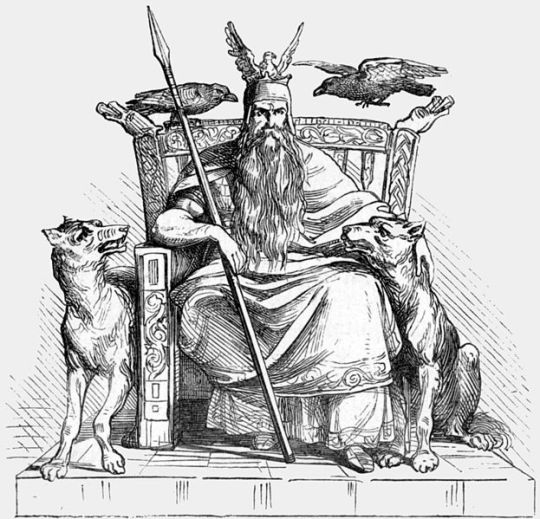
(Odin from Wikimedia Commons)
It wasn’t until four episodes later that I realized he had NO IDEA why I said Odin other than I’d read the book (and have mostly forgotten details). He actually didn’t know that the English days of the week are all named after gods/representations of gods. I had to go through each day name and give him the references, starting with “Wodensday”. He then picked up on the differences between English and Romance languages (I don’t know French but I could draw parallels with Spanish’s Miércoles, therefore is not named after Woden/Odin. Anyway, I digress).
Then I looked up alternate names for Odin and, well, that god got around. I wonder if Zeus had as many alternates.
Anyway, the short and long of it is that I’m just merrily going along, understanding about 99% of the references (Mr. Nancy, Mr. Jaquel, Du’at, Chernobog/Czernobog, the Slavic version of the three fates, djinn, etc.) while my husband ... doesn’t understand most of them other than Mad Sweeny (to be fair, he understood why Mr. Jacquel is named that, too). It hasn’t necessarily hurt his enjoyment of the tale, which is good.
But then I also realized that he’s also missing some of the other cultural references. He recognized Lucy/Bowie/Marilyn no problem, but the Clockwork Orange heavy-handed references went right over his head. I kept mentioning the Korova Milk Bar vibe to him, then the mob scene and codpieces nailed it home, but he’s never seen the movie or even read the book, so that’s a huge visual missed. That makes me kind of sad.
I’m sure there are a lot I’ve missed as well -- they’ve packed so much into the visuals - but overall I might have the advantage here. That’s ok, he has the math advantage. Always.
3 notes
·
View notes
Photo
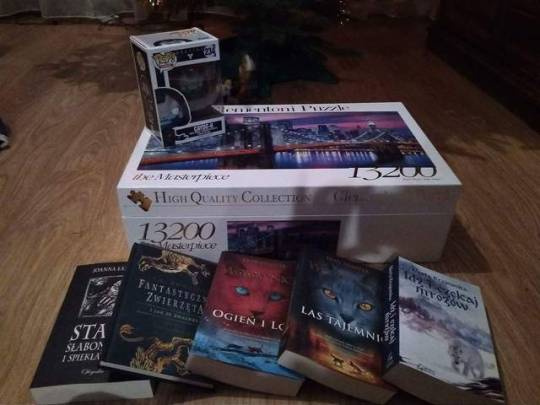
Christmas is here! I got Cayde 6 POP figure, huuuuuuge puzzles and books! I’m so happy I got them! Titles are in Polish ofc, but I got second and third volume of “Warriors”, “Fantastic Beasts….” and two books about Slavic Mythology yay!!! :D
16 notes
·
View notes
Text
Castle of Heart (Switch NA)
Win one of five copies!
Here’s a fun one! The fine folks at 7levels have given us 5 copies of their awesome Switch game Castle of Heart, to giveaway to you folks. I enjoyed the game on release, and the devs have continually updated and support the game. In fact, a new update just dropped yesterday! The game is also on sale for 33% off ($10.04 sale price) currently. So what’s the game about? Let’s look below!
Game details, from the Switch page:
“The brave hero must travel all the way from the petrified village to the dark ruler’s castle, mastering 20 levels set in 4 distinct environments – full of enemies who require different strategies to face them successfully and sudden gameplay changes, which translate to exciting, dynamic action sequences. The selection of progressively more powerful additional weapons, from flaming grenades to powerful magical arsenal, as well as power-ups, will help him in his quest. But remember – the body of stone has its limits! It disintegrates permanently as the knight loses the energy, which he can supply only by defeating his enemies, and if the process reaches the critical level, he may lose one of his arms and the ability to wield additional weapons with it.
Castle of Heart offers beautiful and detailed 3D graphics with changing landscape, weather conditions and rich backgrounds. The game’s aesthetics and bestiary are in equal parts inspired by the Slavic mythology – with some locations derived straight from famous, mystical locations in Poland, the developers’ home country – and the dark fantasy atmosphere of the best action platformer titles from the golden age of the genre. All of this makes Castle of Heart a perfect mix of classic influences and modern approach, utilizing the spectrum of Nintendo Switch features, which will enchant both fans of the genre and newcomers.”
Like the sound of it? Once again, it’s pretty cool imo, and I’m excited to dive back in after another update. So…. how do you win a copy? Easy peazy, lemon squeezy my dear readers: Simply leave a comment below, telling me your favorite castle/castle level from a game! Winners will be not so randomly chosen (the better/more detailed the comment, the better) by me at the end of the contest. Contest ends 11/07/18 @ 11:59 PST. Good luck!
You are logged out. Login | Sign up
Click to open photo gallery:
Official Rules
No Purchase Required to Enter or Win
1. Eligibility: destructoid.com contests are usually provided by sponsors who, due to customs and shipping costs (yay budgets), often limit participation to individuals who are legal residents of the fifty (50) United States (unless otherwise stated) and are at least 12 years of age. We encourage our overseas friends to be super sneaky and make a friend in the United States who can receive your prize, and then you two figure out the customs/logistics. Be cautious about who you trust, obviously. Employees of destructoid.com, their advertising or promotion agencies, those involved in the production, development, implementation or handling of Contests, any agents acting for, or on behalf of the above entities, their respective parent companies, officers, directors, subsidiaries, affiliates, licensees, service providers, prize suppliers any other person or entity associated with the Contests (collectively “Contest Entities”) and/or the immediate family (spouse, parents, siblings and children) and household members (whether related or not) of each such employee, are *not* eligible and will be fired and publicly beaten if are caught participating. All U.S., federal, state and local and regulations apply.
2. Agreement to Official Rules: Participation in the Contest constitutes entrant’s full and unconditional agreement to and acceptance of these Official Rules and the decisions of the Sponsor, which are final and binding. Winning a prize is contingent upon fulfilling all requirements set forth herein.
3. Entry Period: The start and end dates/times of each Contest (the “Entry Period”) will be posted on the applicable Contest site.
4. Entry: To enter a Contest, follow the instructions on the Contest site. Submission will result in one (1) entry. The number of times you can enter the Contest will be posted on the applicable Contest site. The use of any agencies or automated software to submit entries will void all entries submitted by that person, with the exception of patron members who may enter contests by logging into their ‘perks’ page.
5. Drawing: Unless otherwise specified in the contest details above, we will select the names of the potential winners in a random drawing of all eligible entries received during each Entry Period. The number of winners to be selected in a specific Contest will be posted on the applicable Contest site. The odds of being selected as a potential winner depend on the number of eligible entries received during the Entry Period. Potential winners will be contacted via email and will be asked to provide their full name, age and mailing address within a specified time period. If a potential winner does not respond within the timeframe stated in the notification email, we may select an alternate potential winner in his/her place at random from all entries received during the Entry Period. Limit one (1) prize per household per Contest.
6. Requirements of the Potential Winners: Winners will be notified by the e-mail address associated with their account on destructoid.com and/or receive a Private Message on destructoid.com or through a Twitter Direct Message/Facebook message. Winners have five (5) days from the original message alerting them of their winnings to respond and claim their prize. If no winner comes forward within five business days, the prize will be forfeited and raffled again where destructoid’s hardcore fans are most active (social media).
7. Prize(s): The prize(s) (including each prize’s approximate retail value) available to be won in a specific Contest will be posted on the Contest site. No cash or other substitution may be made, except by the Sponsor, who reserves the right to substitute a prize with another prize of equal or greater value if the prize is not available for any reason as determined by the Sponsor in its sole discretion. The winners are responsible for any taxes and fees associated with receipt or use of a prize. Prizes will be mailed between 1 to 45 business days after winners have replied with their required info.
8. General Conditions: In the event that the operation, security, or administration of the Contest is impaired in any way for any reason, including, but not limited to fraud, virus, or other technical problem, the Sponsor may, in its sole discretion, either: (a) suspend the Contest to address the impairment and then resume the Contest in a manner that best conforms to the spirit of these Official Rules; or (b) award the prizes at random from among the eligible entries received up to the time of the impairment. The Sponsor reserves the right in its sole discretion to disqualify any individual it finds to be tampering with the entry process or the operation of the Contest or to be acting in violation of these Official Rules or in an unsportsmanlike or disruptive manner. Any attempt by any person to undermine the legitimate operation of the Contest may be a violation of criminal and civil law, and, should such an attempt be made, the Sponsor reserves the right to seek damages from any such person to the fullest extent permitted by law. The Sponsor’s failure to enforce any term of these Official Rules shall not constitute a waiver of that provision. In case of a dispute as to the owner of an entry, entry will be deemed to have been submitted by the authorized account holder of the screen name from which the entry is made. The authorized account holder is defined as the natural person who is assigned to an e-mail address by an Internet access provider, online service provider, or other organization responsible for assigning e-mail addresses for the domain associated with the submitted e-mail address.
9.Release and Limitations of Liability: By participating in the Contest, entrants agree to release and hold harmless the Contest Entities from and against any claim or cause of action arising out of participation in the Contest or receipt or use of any prize, including, but not limited to: (a) unauthorized human intervention in the Contest; (b) technical errors related to computers, servers, providers, or telephone or network lines; © printing errors; (d) lost, late, postage-due, misdirected, or undeliverable mail; (e) errors in the administration of the Contest or the processing of entries; or (f) injury or damage to persons or property which may be caused, directly or indirectly, in whole or in part, from entrant’s participation in the Contest or receipt of any prize. Entrant further agrees that in any cause of action, the Contest Entities’ liability will be limited to the cost of entering and participating in the Contest, and in no event shall the Contest Entities be liable for attorney’s fees. Entrant waives the right to claim any damages whatsoever, including, but not limited to, punitive, consequential, direct, or indirect damages.
10. Disputes: Except where prohibited, entrant agrees that any and all disputes, claims and causes of action arising out of, or connected with, the Contest or any prize awarded shall be resolved individually, without resort to any form of class action. All issues and questions concerning the construction, validity, interpretation and enforceability of these Official Rules, entrant’s rights and obligations, or the rights and obligations of the Sponsors in connection with the Contest, shall be governed by, and construed in accordance with, the laws of the Commonwealth of Virginia, without giving effect to any choice of law or conflict of law rules (whether of the Commonwealth of Virginia or any other jurisdiction), which would cause the application of the laws of any jurisdiction other than the Commonwealth of Virginia.
11. Contest Results: To enter the contest without needing to buy/sell anything or request a written copy of the name of the winners, send a self-addressed stamped envelope (stating the specific Contest you are requesting the winners for) to destructoid.com Contest Winners, 548 Market Street #59757, San Francisco, CA 94104 USA. We run many contests, so please be specific in what you are requesting. Winner requests must be received within thirty (30) days from the end date of the applicable contest (they’re always posted on our site though). Winners are usually posted the day following the contest on our contest section.
Lastly, destructoid has the right to kick your ass and take away your prize if you are a total dick, so be cool and don’t kick any puppies on your way to victory. Have fun with our contests and be a good sport when you win or lose. Remember: First you get the power, then you get the money, then get the baby.
Filed under…
from SpicyNBAChili.com http://spicymoviechili.spicynbachili.com/castle-of-heart-switch-na/
0 notes